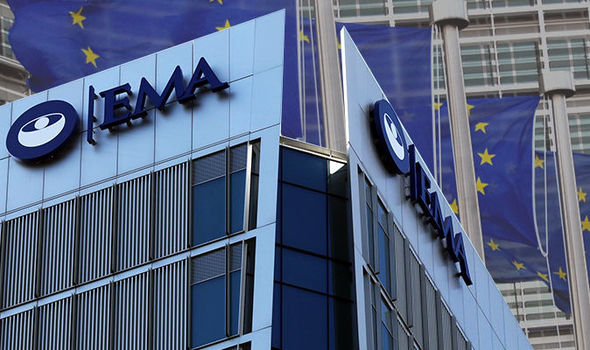EU Expands Ozempic Probe After Reports Of Suicidal Thoughts

The European Medicines Agency (EMA) is currently investigating Novo Nordisk’s diabetes drug Ozempic and weight-loss treatment Saxenda after the Icelandic health regulator reported three cases of patients experiencing suicidal thoughts or self-harm. Following this news, shares of the Danish drugmaker fell 1% on Monday.
The EMA safety committee is examining the adverse events brought to light by the Icelandic Medicines Agency. The reported cases include two instances of suicidal thoughts in individuals using Ozempic, which contains semaglutide as the active ingredient, as well as a patient on Saxenda, Novo’s earlier weight-loss drug containing liraglutide, reporting thoughts of self-injury.
Novo Nordisk stated that patient safety is their top priority, and they take all reports of adverse events seriously. Their own safety monitoring has not found any causal association between the drugs and self-harming thoughts, according to their statement.
The EMA investigation focuses on medicines containing semaglutide or liraglutide. Wegovy, Novo’s obesity treatment, which has seen high demand in the United States, contains semaglutide.
The review comes after the regulator previously raised a thyroid cancer safety signal for several of Novo’s products containing semaglutide.
While suicidal thoughts are not listed as side effects in the EU product information for either drug, prescribing instructions for Wegovy in the United States recommend monitoring patients for such thoughts or behavior.
Data from the U.S. Food and Drug Administration Adverse Event Reporting System (FAERS) Public Dashboard indicates at least 60 reports of suicidal ideation since 2018 from patients on semaglutide or their healthcare providers. FAERS has received at least 70 such reports since 2010 from users of liraglutide or their healthcare providers. It’s important to note that the information in these reports has not been verified, and their existence does not prove causation, as stated by the FDA.
The FDA monitors the safety of drugs throughout their life cycle. Although Wegovy’s trials did not indicate an increased risk of suicidal behavior, the drug’s label contains a warning for suicidal behavior and ideation due to the risks associated with other weight management drugs, according to the regulator.
While Iceland’s regulator has only reported three cases, the issue of suicidal thoughts linked to weight-loss drugs is sensitive and has posed challenges in the past for the development of profitable weight-loss medications by the pharmaceutical industry.
In clinical trials for Ozempic and Saxenda, Novo excluded people with a history of psychiatric disorders or recent suicidal behavior.
Sanofi’s Acomplia, which never won U.S. approval, was withdrawn in Europe in 2008 after being linked to suicidal thoughts. Acomplia was designed to modify parts of the nervous system that regulate appetite. New weight-loss drugs such as Wegovy regulate appetite by mimicking a gut hormone, and not directly interfering with brain chemistry.
Diet pills Contrave by Orexigen Therapeutics and Qsymia by Vivus Inc, approved in the U.S. in 2014 and 2012, respectively, carry warnings on their labels about the increased risk of suicidal thoughts.
Markus Manns, senior portfolio manager at Union Investment and a Novo shareholder, said that a low incidence of suicidal thoughts might be acceptable for a drug against Type 2 diabetes but not for a weight-loss drug.
The EMA initially said on Monday that it would consider whether the review should be extended to other medicines of the same class. On Tuesday, The EMA announced that it has extended the investigation to other medicines of the same class (GLP-1 receptor agonists). This announcement led to a decline in the shares of Eli Lilly by 3.1%. Trulicity, a diabetes drug manufactured by Eli Lilly, belongs to this class of drugs too. Novo’s weight-loss drug Wegovy, which contains the active ingredient semaglutide, is also part of the review. In addition to Trulicity and Wegovy, other GLP-1 drugs include Sanofi’s Suliqua and AstraZeneca’s Bydureon. These drugs are approved in Europe for the treatment of type 2 diabetes.
The EMA’s ongoing thyroid cancer investigation includes all GLP-1s. Other drugs in the class include Eli Lilly and Co’s Mounjaro. Lilly did not respond to a question from Reuters on whether the EMA had contacted them to provide data for the new investigation.
Penny Ward, a visiting professor in pharmaceutical medicine at Kings College in London and an expert on EU drug safety monitoring, said the most likely outcome of the investigation would be a change in the drug’s label in the EU to carry a warning of the possible side effect of suicidal thoughts.
Another drug safety expert, who spoke on condition of anonymity, said the small size of Iceland’s population might have led regulators to consider only a few adverse event cases were a significant proportion and worth investigating.





